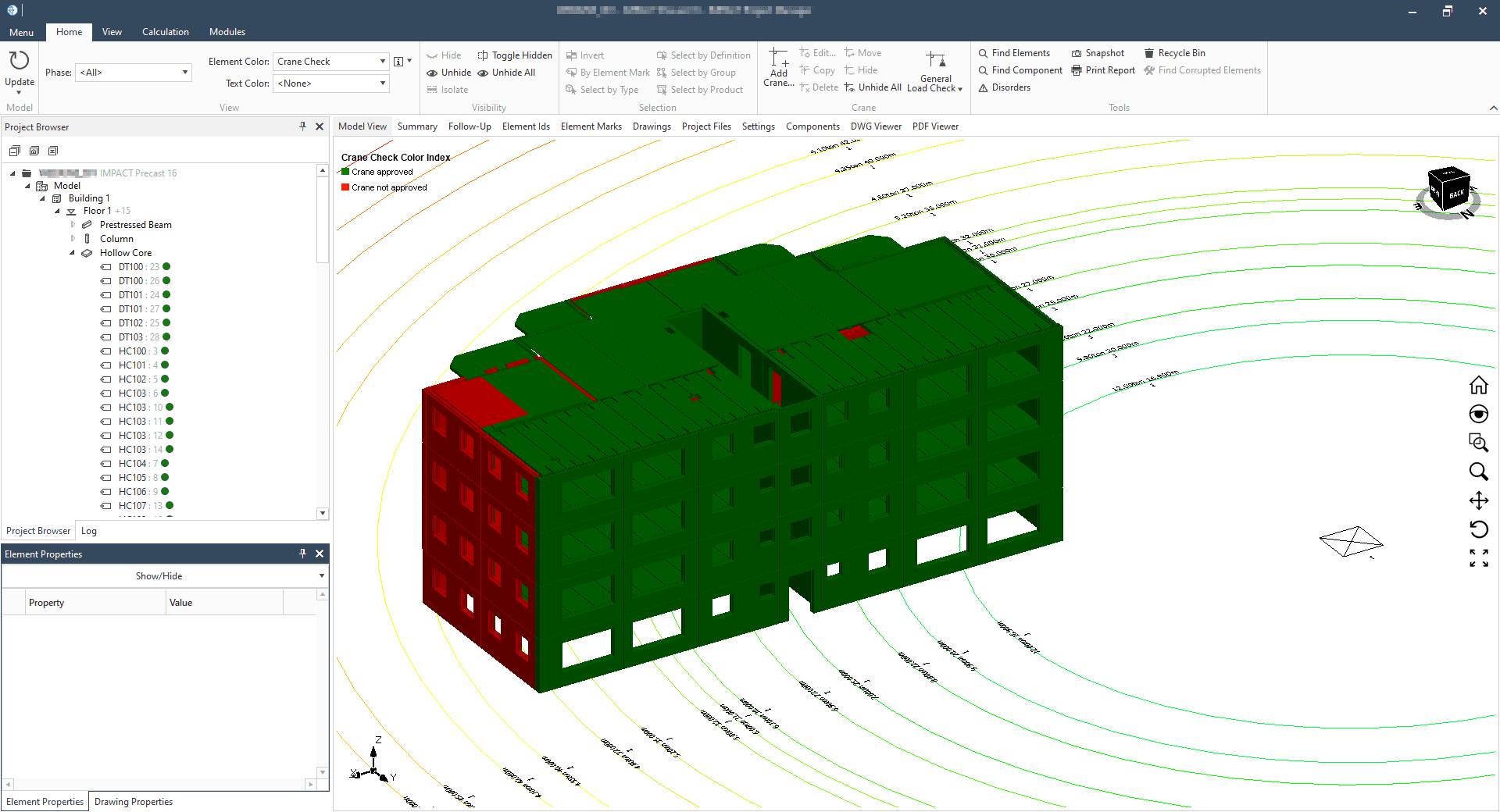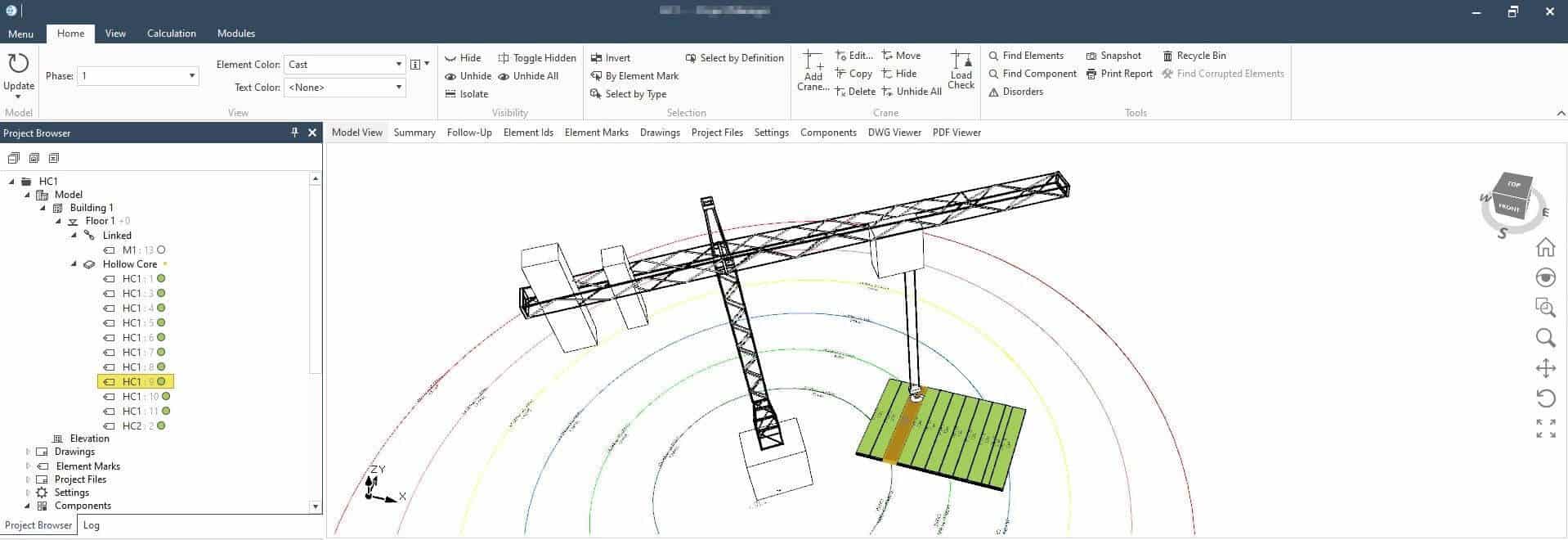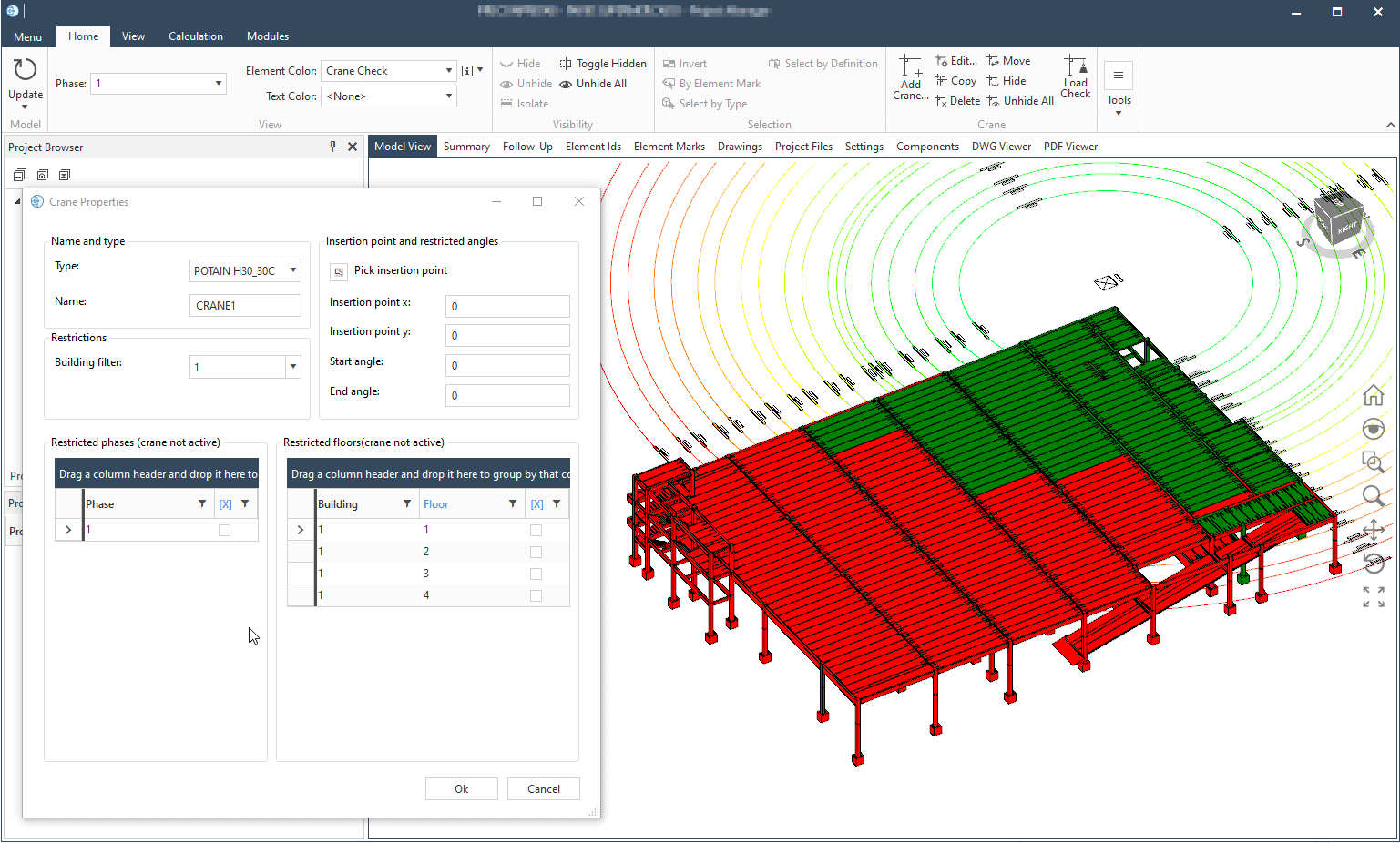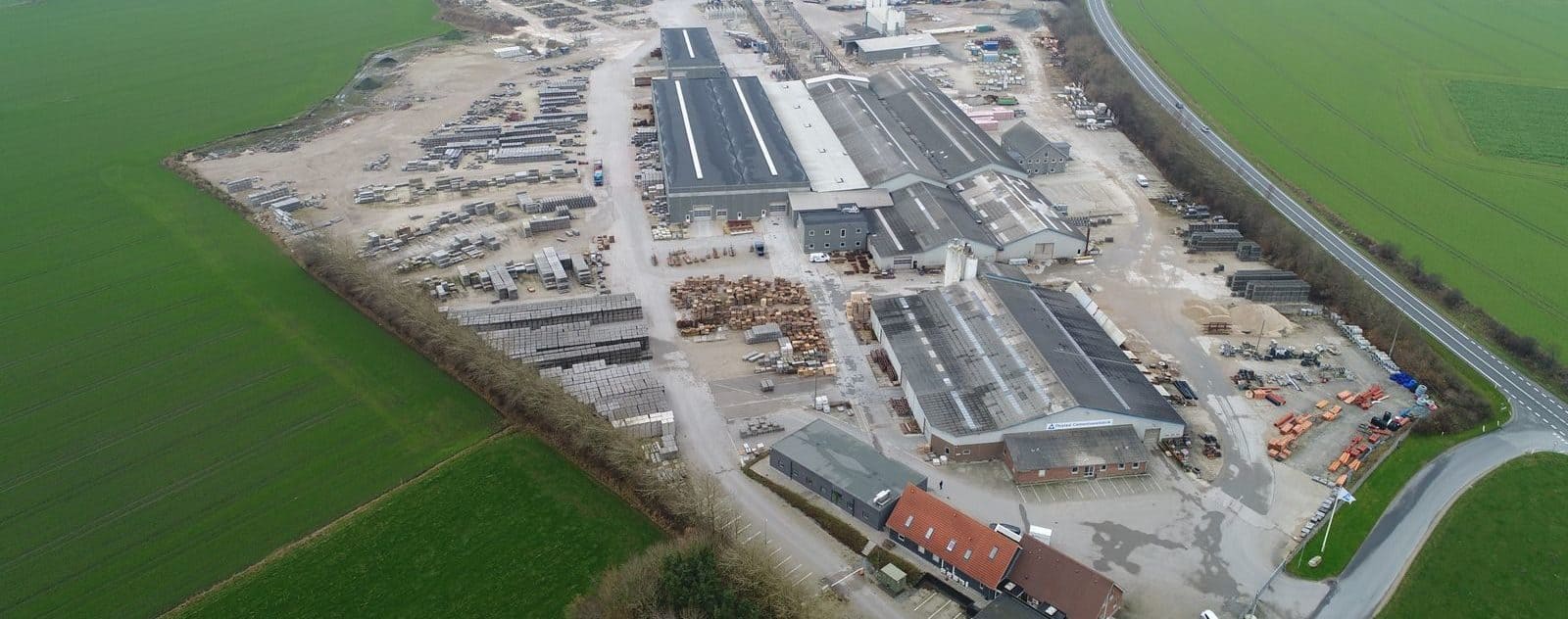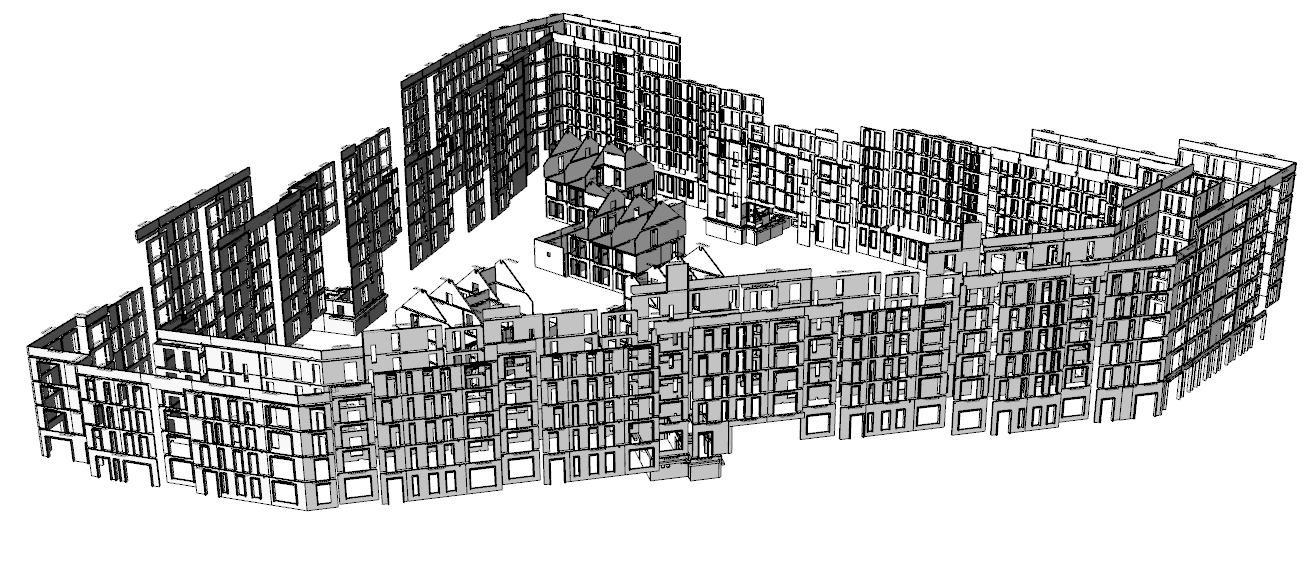Precast Concrete Crane Planning
Precast Concrete Crane Planning in IMPACT is extremely simple. The software module helps you plan your crane capacity types and lifts for all your precast concrete elements.
On the site of a precast concrete project, the size and capacities of cranes often play a large role in the erection of elements. Using the IMPACT Project Manager, handling the positioning of cranes is made easy. You simply create definitions for your cranes in terms of reach and capacities, pick a crane for your project and select where to place it.
You plan in full 3D with the IMPACT Project Manager, which is very simple to use and you don’t require any 3D modelling skills or prior knowledge of modelling software.
Watch the video about Project Manager Erection
Advanced 3D Precast Concrete Crane Planning Features
The crane planning in IMPACT also introduces advanced features such as limiting crane lifting angles, limiting specific cranes to certain buildings, floors, or phases in larger construction projects. You can add as many cranes as needed to any project.
You can also setup an erection sequence on all your precast elements with unique Erection IDs through date dependencies and also factor in different lifting times for different types of precast elements. You can then simulate the erection sequence in the IMPACT Project Manager.
The crane is shown in a simplified model as a box, to facilitate the focus of the capacity of the crane itself and the elements it needs to lift. If you want to add a 3D model of the crane, this is also possible by adding in a 3D model through IMPACT Design, or you can import a crane from another 3D modelling tool such as Revit or Tekla® Structures.
Why wait? Click to apply for a Free Trial of IMPACT and get started today!
IMPACT Wiki
For full technical details on the Precast Concrete Crane Planning module please visit the IMPACT Wiki by clicking here.
IMPACT Blog
IMPACT User Conference 2022 – Live stream of the event (Live from Malmö)
Tomorrow, we are hosting our annual IMPACT User Conference – Live from Malmö. We celebrate that this year, IMPACT […]
30th Anniversary of IMPACT: At the forefront of digitalizing the Precast Concrete Industry
This year, IMPACT turns 30 years old. Our flagship software to allow a cohesive flow of information in the precast concrete industry […]
Precast 3D Modelling and Planning – TCT Implement Optimal System
Located in the northern part of rural Jutland in Denmark, we find TCT’s main precast factory. The factory makes a range of precast products such […]


